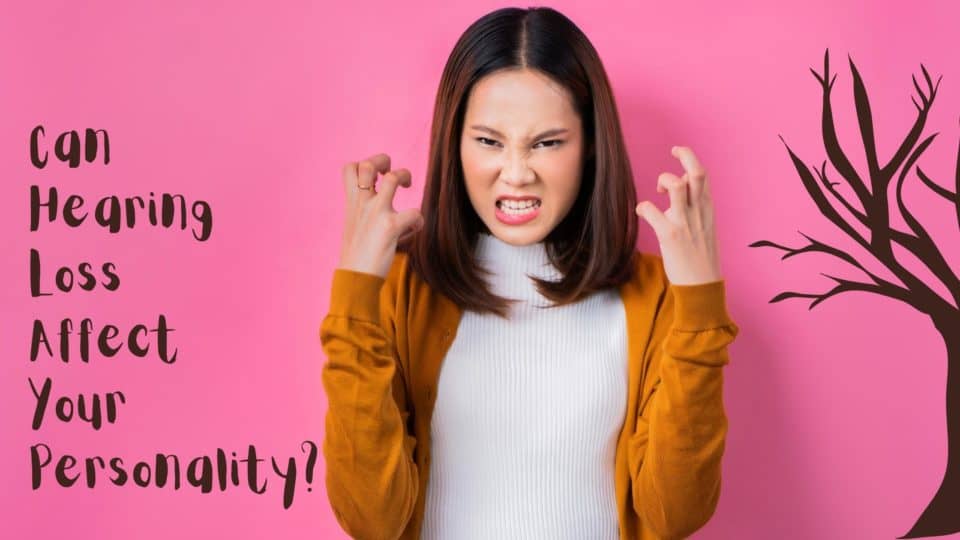- The Emotional Journey of Accepting Hearing Loss - October 25, 2024
- Making a Style Statement with Hearing Aids This Fall - October 15, 2024
- Fireplace Safety and Hearing aids - October 4, 2024
Do you or someone you love struggle with hearing loss? Hearing loss affects 48 million people in the US alone and has a wide array of side effects. While hearing loss affects the ears, it can cause rifts in relationships, chronic depression, anxiety, and reduced mobility. These aspects not only affect your quality of life but can also affect your personality.
What is Personality?
Wikipedia explains personality as “the characteristic sets of behaviors, cognitions, and emotional patterns that evolve from biological and environmental factors.” This goes into the theory of nature versus nurture in which human behavior is determined by the environment, either prenatal or during a person’s life, or by a person’s genes. It is true that aspects of your upbringing and environment most likely affect your personality, but so can an acute illness or a disability such as hearing loss. Hearing loss is in most cases permanent, limiting the amount you can hear and inherently limiting the way and manner in which you socialize.
Researching Hearing Loss and Personality
A 2014 study from the University of Gothenburg examined how hearing loss is linked to changes in personality. Using a group of 400 participants between 80 to 98 years old they tested physical and mental health biannually for six years. They kept track of several personality traits such as extraversion, introversion, and emotional stability. By the end of the six years the study reported that the majority of seniors in the test became less extroverted and outgoing. Many of these traits were attributed to physical or cognitive health issues common in older adults. However, the most consistent factor in this study group was hearing loss, leading researchers to believe that hearing loss caused seniors to become less outgoing.
“Surprisingly, we did not find that declining overall health and functional capacity make people less outgoing,” explained Anne Ingeborg Berg, PhD, researcher at the University of Gothenburg. “But hearing loss directly affects the quality of social situations. If the perceived quality of social interaction goes down, it may eventually affect whether and how we relate to others.”
Hearing Loss and Social Isolation
It is reasonable to suspect that issues with hearing and communication affect how you interact with others. When you struggle to hear it can affect confidence and the likeliness to approach others, when you know hearing is an issue. Overtime, this leads to a higher likelihood of social isolation.
If you consider yourself a social or outgoing person, imagine what it is like when you can’t hear the other people around you. What may have once been an energizing situation, can become a source of fatigue and stress. This is because hearing loss occurs slowly with the loss of parts of words or tones. Your brain is forced to work overtime to fill in the blanks, causing more fatigue than if you had no notable hearing loss. This can make social situations go from fun to stressful. You may feel embarrassed to ask people to repeat themselves over and over, respond inappropriately or appear confused or as you are not paying attention. Ultimately this leads to alienation and less likelihood to spend time with family and friends.
Social Isolation Affects Your Personality
The Study from the University of Gothenburg also noted that social isolation due to hearing loss is a major factor which can affect your personality. It can cause people to be more introverted and less outgoing. In these instances, social isolation was found to increase the likelihood of negative physical and mental health issues such as greater risks of accidents, falls, hospitalizations and even dementia.
The Importance of Treating Hearing Loss
When you live with untreated hearing loss it is hard to connect to the people around you. It can lead to isolation and changes in personality. However, treating hearing loss can help you reconnect with the people you love and start feeling like yourself again. Hearing aids are the most common treatment for hearing aids. These tiny digital devices are constantly processing sound and amplifying only the specific sounds you struggle with. Wearing hearing aids every day can make it easier for you to stay connected and improve your quality of life. The first step in this process of getting back to your old self is to schedule a hearing exam. Schedule a hearing test today!

